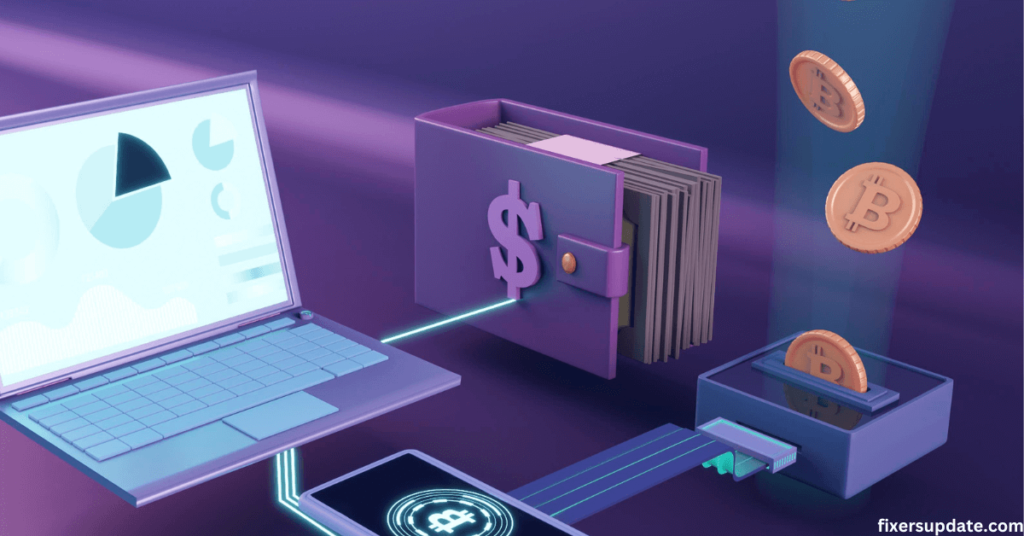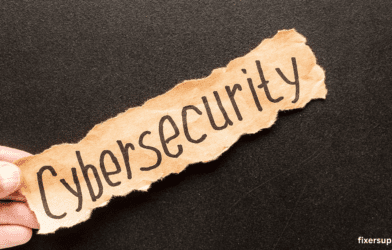While exploring the universe of cryptographic forms of money, it is imperative to think pretty much best practices on the most proficient method to securely store and manage your computerized resources. Which brings us to the cryptocurrency wallet — your window into the blockchain world. But lets get back to basics, what is a cryptocurrency wallet and why you need one?
In this ultimate guide, we will discuss the nitty-gritties of these must-have accessories — their different types and importance in protecting your investments. Whether you are a long-time crypto enthusiast or brand new to the space, learning the basics of cryptocurrency wallets ensures that you traverse this quickly changing digital territory with confidence and safety.

Cryptocurrency Wallet
A cryptocurrency wallet is a software program that allows you to store, send and receive cryptocurrencies. Those do not actually store your coins unlike conventional wallets. Instead they keep on chain the private keys that allow you to control your own pools of digital money.
Cryptocurrency Wallet Types
Wallets fall mainly into two categories
| Type of Wallet | Description |
|---|---|
| Hot Wallets | Hot wallets are those which are connected to the internet and offer quick access to your funds. This consists of mobile apps and browser extensions. |
| Cold Storage Wallets | They are as the name suggests, wallets for storage that are offline and provide better security. Some examples of this type of cold storage are hardware wallets and paper wallets. |
Desktop Wallets
- Installed on your computer.
- Acts as a very high security forced labour camp.
Examples: Electrum, Mycelium, Exodus Note
- Well-suited if security is the highest priority and you wish absolute control over your own funds.
Mobile Wallets
- Installed on your smartphone.
- On-the-go transactions are easier.
Examples: Coinbase Wallet, Trust Wallet, Mycelium
- Great choice for people who want to cash out fast and make frequent transactions with their cryptocurrencies.
Online Wallets
- Served by a third-party service.
- Simple for developers but security vulnerability.
Example: Coinbase, Binance, Gemini (Exchanges)
- For novices, or for those who simply want to buy and sell cryptocurrencies.
Hardware Wallets
- Hardware with security features built in
- A more secure option
Examples: Ledger Nano S, Trezor
- Perfect for keeping vast quantities of cryptocurrencies safe, particularly in case you are nerves led!!!
Custodial and non-custodial wallets
| Type of Wallet | Description |
|---|---|
| Custodial Wallets | Custodial wallets, such as exchanges, control your private keys for you. |
| Non-Custodial Wallets | Non-custodial wallets are where you hold and manage your own private keys. Each of these options has its advantages and disadvantages, balancing security against usability. |
Knowing about them will allow you to decide the best way possible to store and manage your cryptocurrencies.
Unique features of a Cryptocurrency Wallet
Private Keys: Despite the seemingly secure nature of most crypto wallets, you should be made aware that all access to your wallet and cryptocurrencies is facilitated by a number unique codes called private keys. These are the most important part on a wallet.
Public Addresses: Like your bank account numbers, used for others to send you coins.
Transaction History: Record of all transactions you have made : date, time, amount, to which address it was sent etc.
Security Features: When it comes to funds, it is better to have some security layers around as far from being digitally robed.
Choosing the Right Wallet
This will depend on your own needs and your risk tolerance. Factors to consider include:
Security
This category is usually scored similar to the ownership just explained (Hardware Wallets are the most secure and Desktop Wallets in second place right above Mobile). The next barricade addresses the online wallets, which are obviously the least secure.
Mobile wallets
The most convenient are mobile wallets, which can be easily used for transactions on the go.
Cryptocurrencies you want to store
Make sure the wallet stores the coins you are looking to use.
Costs
Wallets might charge transaction and, or storage fees.
UI(User Interface)
go for easy-to-navigate wallets
Wallet Security Best Practices
Passphrases: Create a long and complex passphrase to protect your wallet. Stay away from the most common credentials like birthdays or pet names.
Make backups: Make a backup of Your Wallet regularly to avoid data loss Save your backup preferably offline.
Phishing: Always be careful with phishing scams that want to clean your wallet. Never leave click on Dangerous links, and never share your Private key with any one.
Updates: Regularly update your wallet software, this keeps security patches and bug fixes up to date.
Cold Storage: If you are going to store any significant amount of cryptocurrency, consider cold storage solutions such as hardware wallets or paper wallets.
How Cryptocurrency Wallet Works?
Every time you make a wallet, it creates two cryptographic keys the public and private keys. The public key is your wallet address which you can share this to receive funds. However, you should keep your private key secretly to access and transfer your crypto coins.
Imagine the public key is your email address and private key is the password. They may share the email address used but would never divulge their password.
Anyone who is planning to venture into the world of digital assets absolutely needs to understand cryptocurrency wallets. Investing in a hardware wallet is investing in your own hands, providing the easiest on-ramp access to cryptocurrency management.

The Most Suitable Cryptocurrency Wallet
Assess Your Needs
Before you even pick a cryptocurrency wallet, take note of what it is you require. By looking at the type of coin you will store, how often you transact and your security levels.
In other words, if you trade a lot, you want to keep your trading wallet with fast access and many different currencies.
On the other hand, long-term buy and forget investments may see a highly secure cold storage as an appropriate option.
Compare Security Features
You should choose a wallet that prioritizes security. Some wallets provide extra security features like Two-factor authentication, Multi-sig support and so on.
Hardware wallets are the option to go with if you hold a great stake in your chosen cryptocurrency since they store the private keys offline.
That said, for general use, software wallets can be good enough as well, provided they have been granted the same security measures.
Consider User Experience
How you interact with your wallet on a day-to-day basis has little—or everything—to do with the user interface and overall experience. Choose a wallet that provides the right proportion between security and complexity to use.
Find functionality such as easy-to-navigate menus, order history transparency, and comprehensible backup tasks.
With the many types available, it can be quite a challenge to find the right one as well as simple because some come with other features such as built-in exchanges or portfolio tracking, but it could be useful if that is what you need.
About Establishment and After-sale Services
Lastly, you should look into the vendor behind the wallet and what their support structure is like. Use Wallets from Reputable Companies — Use wallets provided by reputable companies with a long track record of reliability and security. Refer to user reviews and forum comments of other users. Moreover, make it is a rule to find the wallet that supports you in any arising issue through their customer support.
How to Secure Your Crypto Wallet ?
When it comes to cryptocurrency, keeping your digital assets safe should be priority number one. Steps To Secure Your Wallet And Investment
Use Strong Authentication
The first thing is to establish sturdy authentication. The password for your wallet ought to be complicated and unique, it should also contain uppercase and lowercase alphabets, numbers as well as symbols. Add at least 2FA (two-factor authentication) wherever possible as an extra layer of protection.
Managing Your Private Keys
Private keys are what holds your cryptocurrency together. Never share it with someone else and save it in a secure location offline. You can use a hardware wallet or write them on a piece of paper and put it in a safety deposit box, for example. Do not store your private keys on internet devices to reduce the risk of hacking.
Backup and Update
Be vigilant — Keep your wallet software up-to-date with the latest security patches Always have at least 1-2 physical back-ups of your wallet, in different but equally secure locations. This is an extra step in case you lose the device or it gets stolen, preventing someone from getting access to your funds.
Beware of Phishing
Cryptocurrency users are constantly being targeted by cybercriminals through phishing. Always double-check URLs from websites and the email addresses you are sending sensitive information. Be cautious with unexpected messages, or deals that just seem like they are too good to be true about your holdings in cryptocurrency.

pros and cons of cryptocurrency wallets
| Pros | Cons |
|---|---|
| Keeps Your Money Safe: Some wallets store your money offline, which makes it hard for hackers to steal it. | Can Be Hard to Use: Some wallets have complicated designs that can confuse new users. |
| You Control Your Money: With non-custodial wallets, you are the only one with access to your money, so no one can take it away. | If You Lose It, It’s Gone: If you forget your password or recovery phrase, you can lose access to your money forever. |
| Fast Transactions: Some wallets let you send and receive money quickly, which is great for buying things. | Risk of Hacking: Online wallets can be hacked, which means someone might steal your money. |
| Manage Many Types of Money: Many wallets let you hold different kinds of cryptocurrencies in one place. | May Charge Fees: Some wallets ask for fees when you send or take out money, which can eat into your profits. |
| Easy to Back Up: Most wallets help you back up your account, so you can get your money back if something goes wrong. | Trust Issues: If you use a custodial wallet, you have to trust the company to keep your money safe. |
Frequently Asked Questions (FAQs)
What is a Cryptocurrency Wallet?
A cryptocurrency wallet is essentially an account in which you can store various cryptocurrencies. A cryptocurrency wallet is a hardware or software that enables you to store, send and receive digital currencies. Unlike regular wallets, crypto wallets technically do not store your coins. What it does is storing the private keys for you to access your cryptocurrency situated on the blockchain.
Contents Are Cryptocurrency Wallets Safe?
There are a few things that play into the security of a crypto wallet. Hardware wallets are great for security because they take your private keys offline. Although software wallets are convenient, without appropriate safety measures they can be hacked. Always use a strong password, enable two-factor authentication and secure your recovery phrase a safe place.
Can I have multiple wallets for different cryptocurrencies within one wallet?
Most wallets support more than 1 crypto allowing you to manage multiple digital assets from one single place. These wallets are known as multi-currency wallets. However, some wallets are for certain cryptocurrencies only. You need to be used the compatible wallet for your specific needs.
What is the decision between the hardware wallets?
Consider factors such as:
- Security features
- User interface
- Supported cryptocurrencies
- Transaction fees
- Mobile accessibility
Beginners may prefer user-friendly software wallets, whereas more experienced traders will want to use hardware wallets for higher security.
Are crypto wallets free?
You can download and use most crypto wallets for free. That said, many of wallets have transaction fee and some charge for storage. Be sure to check out the terms and conditions of the wallet you use to find out what fees apply.
Conclusion
- When it comes to cryptocurrency, having an account with currency attached is not enough; here you need understanding of what wallets are, as this knowledge will ensure proper management and security of holdings.
- With knowledge of what these types of wallets are and how they function, you can make decisions as to which would benefit you most.
- Ensure security is a top priority, factor in how the service will be used and stay up-to-date on recommendations.
- Whether you use a hardware wallet for storage or mobile wallet on your phone for daily use, it important to manage your wallets appropriately.
- Understanding this, you now have the knowledge necessary to store and utilise your cryptocurrencies safely amid this exciting and ever-changing financial state.













